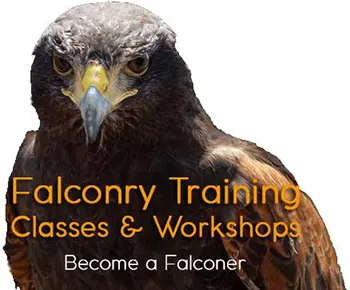Why is Pest Bird Control in Agriculture so challenging?
- Rather than just dealing with one species of Pest Birds, crop producers suffer substantial damages and economic loss caused by pigeons, starlings, sparrows, seagulls, crows, and more.
- The sheer size of the area that needs protection creates challenges.
- Some pest birds fly in very large flocks making deterrents more difficult.
- Traditional bird control methods are usually inadequate or become ineffective very quickly.
- Using chemical deterrents pollutes the soil, water and is potentially poisenous to animals and humans.

Agriculture in general has always faced many challenges producing crops from start to finish. Aside from the usual worries about the weather - enough sun or too much sun, enough rain or too much rain, strong wind, hail, etc.,- pest birds can also become a persistent problem. Traditional methods of deterrents may include scarecrows, reflective tape, noise cannons. These quickly become ineffective as birds become accustomed to them. Netting entire fields is labour intensive and costly to install and maintain. Using chemicals can harm some crops and pollute the environment. Pest birds often eat the seeds of freshly planted crops. Some birds prefer the new seedlings as they sprout. In Vineyards, birds will eat the fruit and spoil the grapes leading to reduced yield and lower quality wines. The economic impact can be quite significant.
Why are Raptors a Better Solution to Protect Crops?
Birds of Prey are natural predators of most pest bird species and are an effective and environmentally friendly alternative to other deterrents or repellents. Birds of prey, or raptors, include hawks, falcons, eagles, owls and vultures. Vultures aren’t used for bird control as they prefer their prey to be already dead. The very presence of raptors in the area creates a “landscape of fear” for the pest birds and they will avoid the area altogether.
Raptors help maintain an ecological balance in controlling bird populations naturally - as Mother Nature intended. The presence of raptors keeps the pest bird population in check and the fear of a nearby raptor will never diminish because the threat is ever present.
How will I know which Bird of Prey I need?
Using birds of prey in agriculture is not without its own unique challenges. Hiring a falconer with different species of raptors is the easiest and most effective, promising the best outcomes and lowest cost. A professional falconer will know what species of raptor to use for a particular species of pest bird. Hawks and falcons go after different prey. The size of the pest bird will often indicate the type of raptor needed. A professional falconer will also know what, if any, permits are required as some species of birds are protected wildlife and permits will be necessary. Falconers have an understanding of their raptors' behaviour and they are committed to the welfare of their birds. Most jurisdictions in North America have licensing requirements to become a falconer and to maintain and care for raptors.
Monitoring is required by both, the falconer and the farmer or vintner, to determine the best times to deploy raptors during the growing season, and sometimes during harvest.
Can I just get a Raptor myself?
Acquiring, maintaining, and caring for birds of prey is very costly and time consuming; so, it makes sense to start with a professional who has the raptors and the experience to know what is needed. If a farmer or vintner wants to get into flying their own raptors, this cost needs to be investigated and considered. Regular veterinary care is also a part of keeping birds of prey. The health and safety of the raptor is a falconer's number one concern. Additionally, there are ethical considerations to hunting and flying raptors for bird control that may weigh into such decisions.
 That said, a vintner in the Niagara Region in Ontario, Canada became fascinated with Hawkeye's beautiful bird of prey, a Harris hawk, that was hired to save her rapidly disappearing grapes from pest birds. She watched the Hawkeye falconer fly the hawk and was captivated by the relationship between the falconer and the bird. She then became an apprentice falconer herself, and now flies her own bird of prey across her grapes and has realized a significant economic boost from this endeavour.
That said, a vintner in the Niagara Region in Ontario, Canada became fascinated with Hawkeye's beautiful bird of prey, a Harris hawk, that was hired to save her rapidly disappearing grapes from pest birds. She watched the Hawkeye falconer fly the hawk and was captivated by the relationship between the falconer and the bird. She then became an apprentice falconer herself, and now flies her own bird of prey across her grapes and has realized a significant economic boost from this endeavour.
Using birds of prey to protect crops from pest birds is a beautiful blend of nature and man coming together in an ecologically and environmentally sustainable way.
Hawkeye's Commercial Falconry Program
Hawkeye Bird & Animal Control has the experience and know-how to fly Birds of Prey in just about any setting and even in extremely hostile environments. We have worked in and with many industries and locations, including Agriculture and Vineyards. Contact us today and get a head start on protecting your crops.














